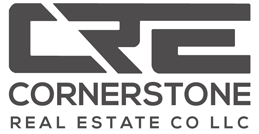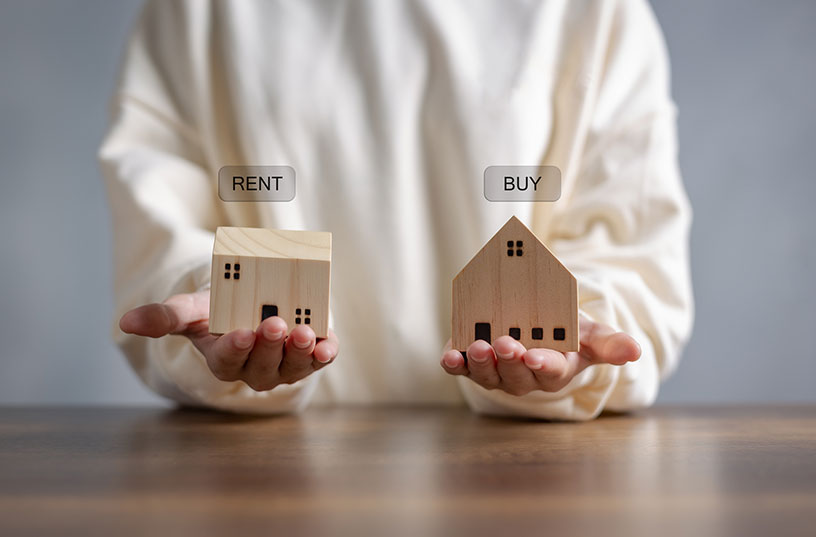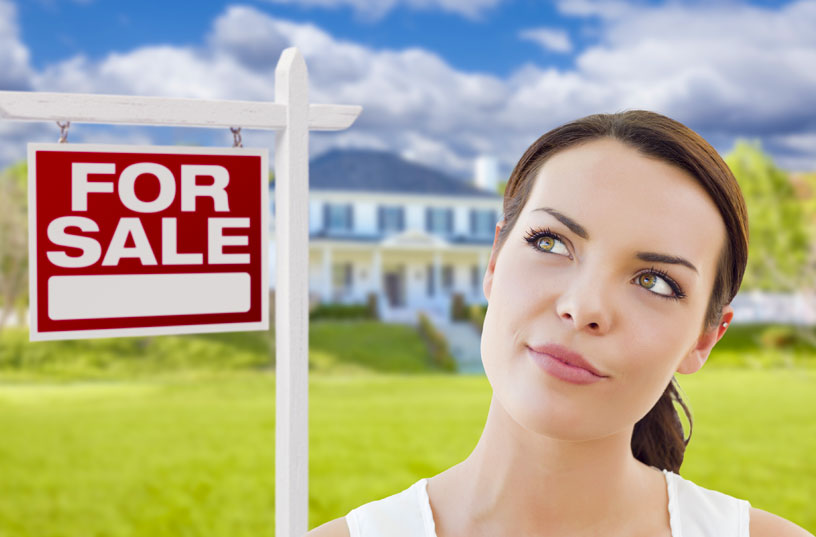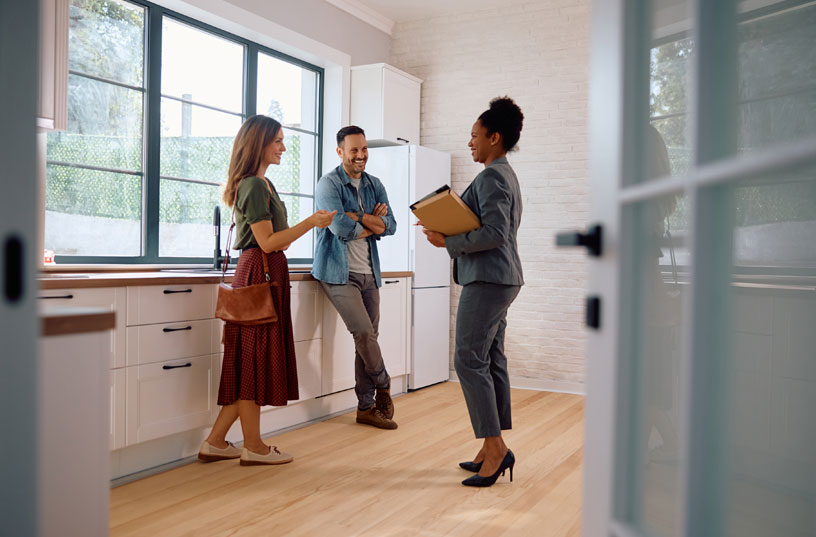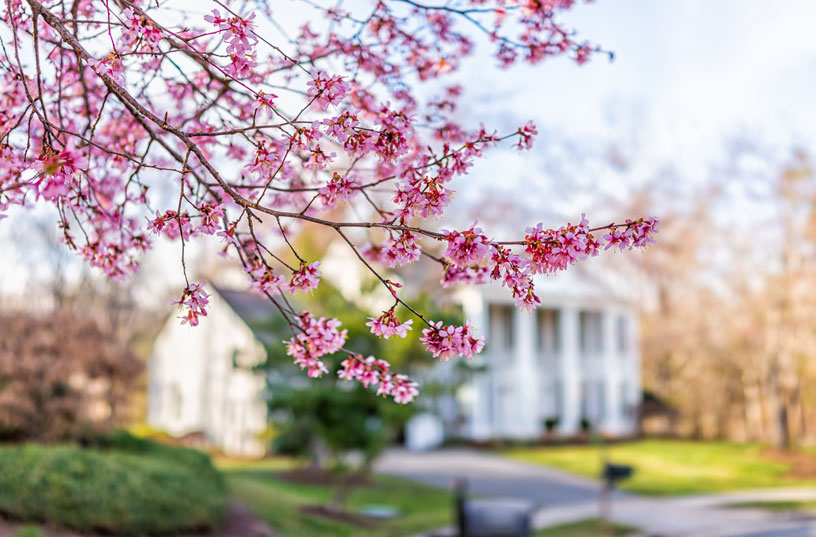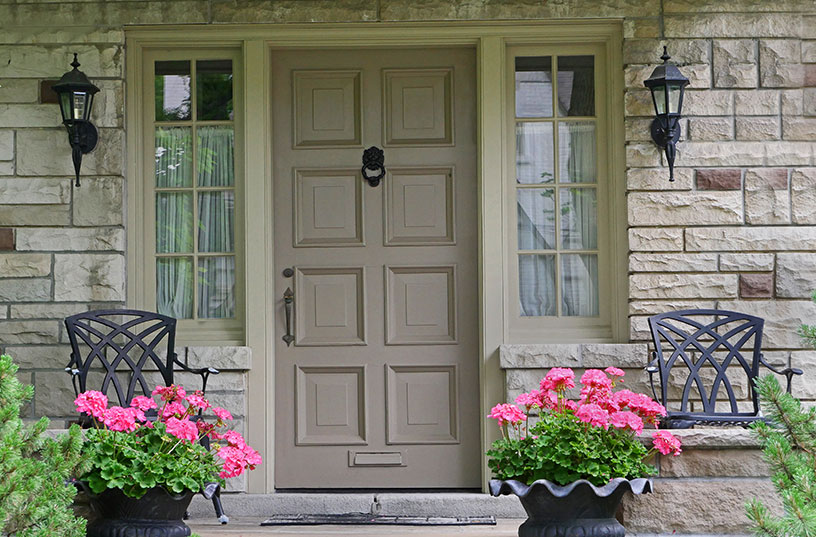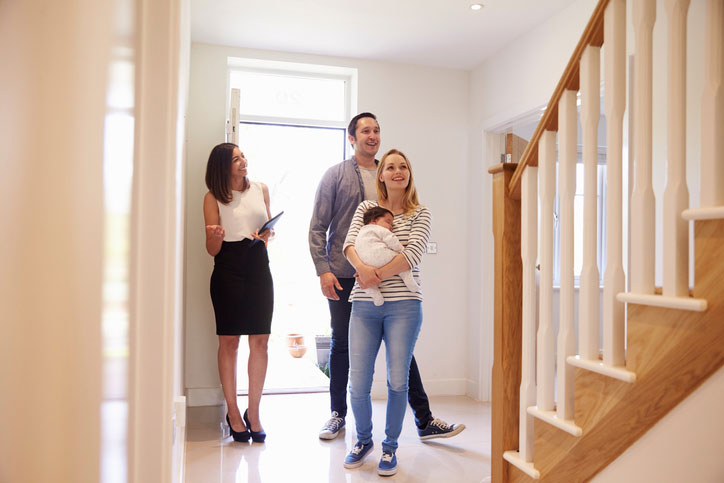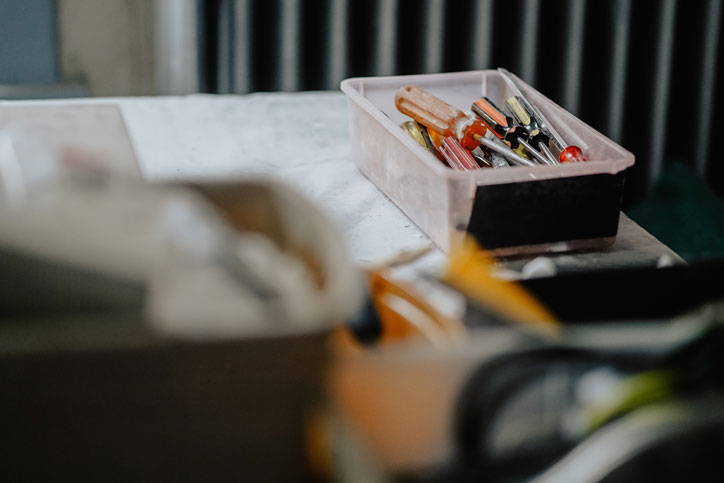You’ve probably heard the adage that renting is considered “throwing money away” while buying is an “investment.” However, the decision to rent or buy is a bit more complicated. It really depends on your individual situation, including your lifestyle, career, finances, and long-term plans. Even the economy is a consideration. In other words, it’s not a one-size-fits-all answer.
Renting a Home
Most people will rent an apartment or home sometime during their life – usually when they’re young and just starting out. It makes sense to rent when you’re not sure where your job will take you, if you’re paying off debt, or trying to save money for a down payment. For people who work long hours or travel a lot, and don’t want the responsibilities that come with home ownership, renting also makes sense. And if you need to relocate, leaving a rental is much easier than selling a home.
In fact, less responsibility and lower costs are the primary benefits of renting. When renting, your landlord is responsible for insurance, maintenance and repairs, property taxes, HOA fees, and other costs. If the water heater breaks or the roof leaks, you’re not responsible for repairs.
Of course, there is a flipside. When renting, you’re limited in the changes you can make to the dwelling. If you’re someone who likes to decorate, make improvements, plant a garden, and personalize your space, you may be frustrated by these limitations. In addition, many rentals don’t allow pets, so if you’re someone who can’t live without Fido or Fluffy, you might have a hard time finding a place. And when things break, there is no guarantee that repairs will be made in a timely manner. You could be living without hot water for days or weeks depending on the landlord.
However, the biggest concern among renters is the increasing costs of rent. Unless there is some type of rental agreement that locks in monthly payments, which is not typical, the landlord can increase rental fees at any time. In general, renting is not considered a good long-term solution since you’re not building equity. If you rent for decades, you may be spending more than you would on a home of your own.
Owning a Home
Buying a home is a big commitment. In the short term, ownership is more expensive and complicated than renting. You’ll need to finance a down payment, closing costs, and insurance, and then make monthly payments, pay property taxes, HOA fees, and cover the costs of home repairs. Yet, these costs are an investment, which typically appreciates in value over the years. For most people, a house is the biggest investment they will make. And you don’t have to wait to sell your home to take advantage of that investment – you can borrow on the equity you’ve built through home equity loans or refinancing. There are also tax advantages of owning a home since property taxes and mortgage interest are tax deductible.
When deciding on renting or buying, it’s also important to determine how much you can afford in mortgage payments. Experts recommend using the 28% rule, which states that you should spend 28% or less of your monthly gross income on your mortgage payment (e.g., principal, interest, taxes and insurance).
Ownership also means you can settle in and make your house a home by remodeling or upgrading to suit your needs. If you want to turn the dining room into a play space for the kids or add a sunroom, you can! Since most homes have yards, you’re also able to plant a garden, create an outdoor living space, and enjoy some privacy. If you have children or pets, this additional space can be invaluable.
Questions to Consider
So, should you buy or rent? Here are some questions to ask yourself:
- How long do you plan to be where you are now? If you and your family don’t plan on staying where you are for more than three years, you’re better off renting, according to experts. To recover the down payment and closing costs, you need to own the house long enough to sell it for sufficient profit to pay off the existing loan plus the costs and fees associated with selling. Depending on the housing market and economic conditions, this typically happens between 3 and 5 years of ownership.
- Does your job involve a lot of travel and the possibility of relocation? If you’re hardly ever home and don’t have time for home maintenance, renting may be a better option. Also, if relocation is in your immediate future, renting makes more sense.
- What are your finances like? As mentioned, you need to be able to make a down payment (usually 20%) and obtain a mortgage, which requires a good credit score and steady employment. You’ll also need to cover closing costs, make monthly payments, pay property taxes, HOA fees, and other costs. It’s also wise to have an “emergency fund” to cover unexpected home repairs. Talking with a trusted financial advisor or lender can help you determine if you’re ready to buy and how much home you can afford.
- What is the state of the housing market where you live? If home prices are currently high and still rising, or interest rates are sky high, you may want to rent until prices/interest rates come down. However, if rental properties are scarce causing rents to skyrocket, you may be better off buying. Talking to a real estate professional can help you get an accurate picture of your local housing market.
And the verdict is…
The decision to rent or buy is not a simple matter. Tenure, finances, location, housing availability, interest rates, job security, and other factors must all be considered. The best advice is to not rush into anything. Take the time to assess your current situation and future goals, as well as research the market. Talking to a professional real estate agent, even if you’re not sure about buying, can also be very helpful.
A Quick Look at the Pros and Cons
Renting
Pros
- You have the flexibility/freedom to move
- You have no responsibility to maintain the property
- It may be cheaper depending on the area, and you’re not on the hook for expensive repairs
Cons
- Rent can increase at any time
- You can’t build equity
- There are no tax benefits
- You cannot make any changes without approval
- Pets may not be welcome
- You may be stuck with loud neighbors or an unresponsive landlord
Buying
Pros
- Buying a house is an investment – you build equity
- Owning a home can give you a feeling of stability and pride of ownership
- You have freedom to redecorate or renovate as you wish
- Property taxes and mortgage interest are tax deductible
- Pets are welcome
- You have privacy
- Neighborhoods often provide a sense of community
Cons
- Owning a home requires more responsibility in both costs and time
- Property taxes may increase
- Home values can depreciate or remain stagnant over time
- You have less flexibility/freedom if you decide to relocate
